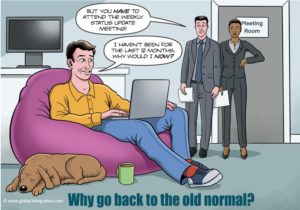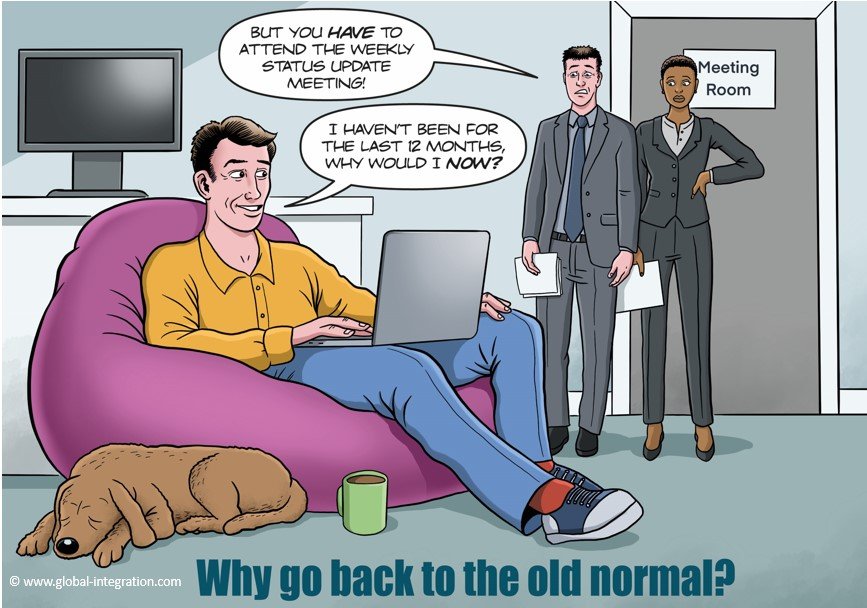Re-socialising the “feral employee”
I was having a conversation with one of my contacts today when he asked me what I thought would be the challenges of re-socialising people into the traditional office workplace. He wondered if some employees would have “gone feral”, which is a phrase I absolutely love.
I like the idea of employees having returned to the wild; living free – unconstrained by rules and hierarchy.
It is a good question though, isn’t it? People working from home have become used to much higher levels of autonomy, they are used to less supervision, they have valued increased flexibility in scheduling their time and being able to work around other life commitment.
I have heard some quite belligerent statements from participants on our hybrid working training programs recently . “I have proven that I can do my job from home, I will need some convincing to spend 2 hours of my day commuting to an office after this.” “If you think I’m coming to an office to do my emails or attend virtual meetings, you’d better think again”, “I drove to the office to sit in a completely irrelevant meeting, I shan’t do that again”.
After over a year of working from home, some will find that the social skills of connecting with others have become rusty. I think many will have become intolerant of some of the office bull**** they considered normal beforehand.
I also think some of this will be good for us. If people push back against bureaucracy, unnecessary hierarchy, irrelevant meetings, and damaging micromanagement this could be highly positive for our work behaviours.
Most leaders have thrived in the remote environment, but some remain eager to get their people back where they can see them. Incredibly, some who have seen real improvements in productivity and engagement over the last 12 months are still worried that if people adopt a hybrid pattern, they will just use it to have longer weekends!
Organizations who cannot cope with work flexibility will became less attractive employers. My HR contacts are telling me that work flexibility is one of the most important areas candidates are asking about.
When we had no choice but to trust our people, they demonstrated their resilience, trustworthiness and productivity under extremely tough conditions. Why would we think that as the situation improves people will abuse our trust?
In my 30 years of experience in working with and training people in remote teams, the number one barrier to remote work always been manager’s reluctance to give up control. Many organisations talk a great game around empowerment but few have made high levels of empowerment an everyday reality.
But back to our feral employee. Will we have packs of inappropriately dressed employees roaming about our offices, snatching the free snacks (if you are lucky enough to have these) and snapping at their managers like a scene from a zombie apocalypse movie? I think it is unlikely 😊
Will we have employees who are less tolerant of domestication and control and who will want to preserve their new found flexibility and autonomy – I certainly hope so.


Explore our training programs to see how we can help.
Agile & Digital Training Matrix Management Training People and purpose Training Virtual Teams TrainingEducate yourself further with a few more or our online insights:
30 years of experience learning with a range of world class clients
We work with a wide range of clients from global multinationals to recent start-ups. Our audiences span all levels, from CEOs to operational teams around the world. Our tools and programs have been developed for diverse and demanding audiences.

Tailored training or off the shelf modules for your people development needs
We are deep content experts in remote, virtual and hybrid working, matrix management and agile & digital leadership. We are highly flexible in how we deliver our content and ideas. We can tailor content closely to your specific needs or deliver off the shelf bite sized modules based on our existing IP and 30 years of training experience.
For more about how we deliver our keynotes, workshops, live web seminars and online learning.